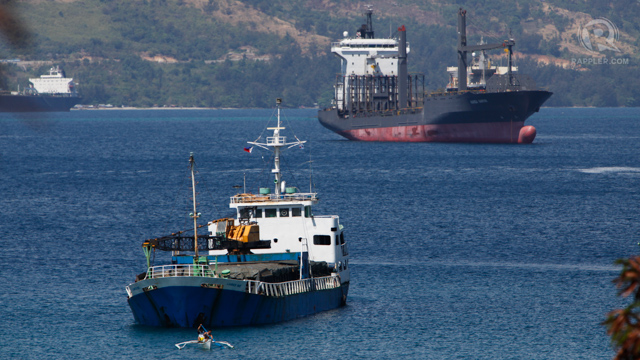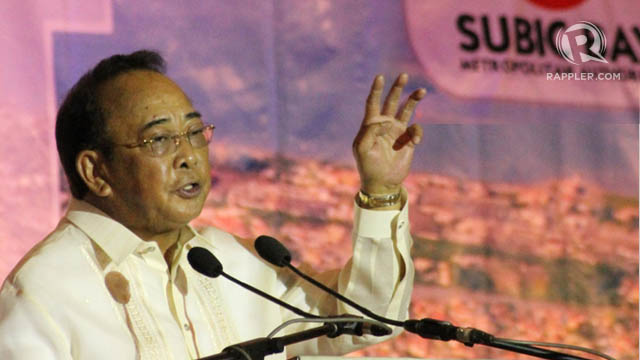SUMMARY
This is AI generated summarization, which may have errors. For context, always refer to the full article.


Subic Bay Freeport, Philippines – It has been almost two years since Subic Bay Metropolitan Authority (SBMA) chairman Roberto Garcia assumed his post, but the agency has yet to attract large investors to locate here.
In his State of the Freeport Address before a group of businessmen on March 18, Garcia admitted “there was no big-ticket items” that boosted employment or revenues in the Freeport in 2012, and since President Benigno Aquino III appointed him to the agency in April 2011.
In fact, he told the businessmen that total committed investments in the Freeport dropped 93% in 2012 to US$70 million from $959 million in 2011. This was despite the increase in the number of new projects launched to 351 in 2012 from 127 in 2011.
The drop in the value of investments indicated that only small entrepreneurs poured money in the Freeport zone.
On the other hand, the increase in the number of projects was due to the opening of Ayala Land Inc.’s Harbor Point mall, which was initiated under the previous administration.
Debts and fees
One reason why investors could be shying away from the zone is higher fees.
Saddled by debts it inherited from his predecessor, Garcia said he had to resort to other means to keep SBMA afloat like charging locators in the Freeport with the common use service area (Cusa) fee. This was to recover the cost of municipal services worth over P300 million annually that SBMA has been absorbing.
Existing investors have lodged complaints against Garcia’s move.
The Subic Bay Freeport Chamber of Commerce (SBFCC) said: “SBFCC acknowledges the enormity of SBMA’s financial problem and we appreciate its call for support, civic mindedness and cooperation from locators and residents. SBFCC believes, however, that the implementation of the Cusa is contrary to the spirit and intent of Republic Act 7227, as it places undue burden on locators and residents, and will create harmful effects on the free port.”
“The Cusa is attempting to charge fees that are already being paid for by locators and residents through mandated taxes,” it added.
Garcia said that the matter has already reached the local courts and that the SBMA will abide by the courts’ rulings.
‘Biggest disappointment’
Garcia meanwhile said derailed plans to convert the Subic International Airport into a Sentosa-like development was his “biggest disappointment in 2012,” apart from controversies about rice smuggling and waste dumping of a US navy contractor, which triggered Senate probes.
The airport conversion was scuttled after the Department of National Defense expressed its intention to use the facility as a forward base for the air force as well as treaty partners like the US.
Despite this however Garcia insisted that 2012 was a banner year for SBMA as it posted record revenues. A closer look at the figures revealed that most of the gains was due to foreign exchange fluctuations, cost-cutting measures and savings from the absence of capital expenditures. – Rappler.com
Add a comment
How does this make you feel?
There are no comments yet. Add your comment to start the conversation.